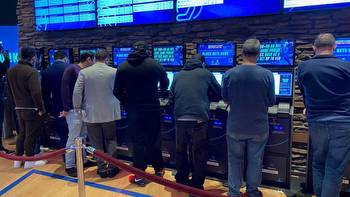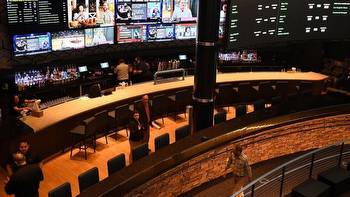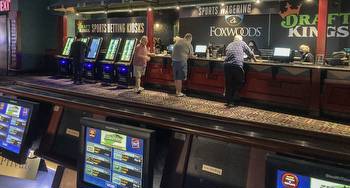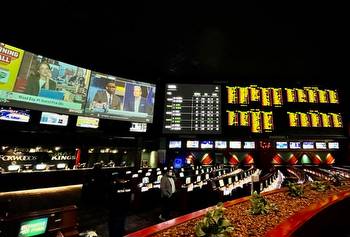Online gambling in CT brings uptick in revenue, problem betting
The legalization of sports betting and online gaming in Connecticut has brought increased revenue to the state but also an uptick in problem gamblers.
The state has received more than $45 million in revenue from online and in-person sports bets and online casino games since the expansion of gaming began in earnest last October.
Online casino games have resulted in about $3 million in tax revenue on average for the state on a monthly basis since the start of 2022 compared to about $750,000 in monthly payments on average from online sports wagers, according to data from the state Department of Consumer Protection. Revenue from sports betting at retail locations and from fantasy sports has been much lower.
The state taxes online sports betting at 13.75 percent, and online casino games at 18 percent, with that rate rising to 20 percent after five years.
In September, the state took in $1.58 million in tax revenue from online sports betting and $3.4 million from online gaming. The state's payment from retail sports betting was nearly $193,000 in September and fantasy sports produced just over $89,000 for the state.
Connecticut's expansion of gaming followed years of lobbying by the state’s two casino-owning tribes, the Mashantucket Pequots and the Mohegans. Now anyone over the age of 21 can place bets anywhere in the state with a smartphone or computer. When Connecticut's law was enacted, mobile sports betting was already allowed in Rhode Island, New Jersey and Pennsylvania, according to the National Conference of State Legislatures. The Connecticut Lottery Corporation also operates online and in-person sports betting sites.
The Lottery does not pay taxes on sports bets placed through its platforms because all of its revenues after expenses move to the state’s general fund. Under the state's gaming law, sports bets placed on tribal reservations, like in-person bets on table games, also aren’t taxed.
The new industry has produced good returns for the state but, as health experts predicted, the ease of betting being at your fingertips has led to increases in gambling addictions and the number of people seeking help in Connecticut. Calls and chats to Connecticut’s problem-gambling hotline are up 134 percent since the launch of legalized sports betting and online gaming, according to the Connecticut Council of Problem Gambling.
"We used to think the problem gambler was the little old lady at the slot machine, now it's the 20-something male who's sports betting," said Diana Goode, executive director of the council, explaining the shifting demographics of those seeking help.
Included in that uptick is a number of "nuisance" calls from people seeking help regarding issues other than gambling addiction. It includes people complaining they are unable to access their accounts.
Prior to the expansion of gaming, Goode said the theory was that if you lived 40 miles from a casino, the chances were higher that you'd become a problem gambler. "Now you pick up your phone and the casino is right there," she said. In addition to people seeking help for addiction to sports betting, online casino games have become a huge problem for some, Goode said. While sports betting is often event-driven, she said, online casinos is "constant – all day every day."
Under the gaming law, the Lottery and the two tribes must allot $4.3 million annually to problem gambling programs. Goode said the council has used funding its received to hire more peer counselors to deal with influx of calls and people seeking help for gambling addiction. The council has also partnered with colleges across the state to promote awareness around problem gambling. She expects the council to have several legislative recommendations when the General Assembly meets next year including putting a cap on the amount of advertising, which she described "out of control."





























